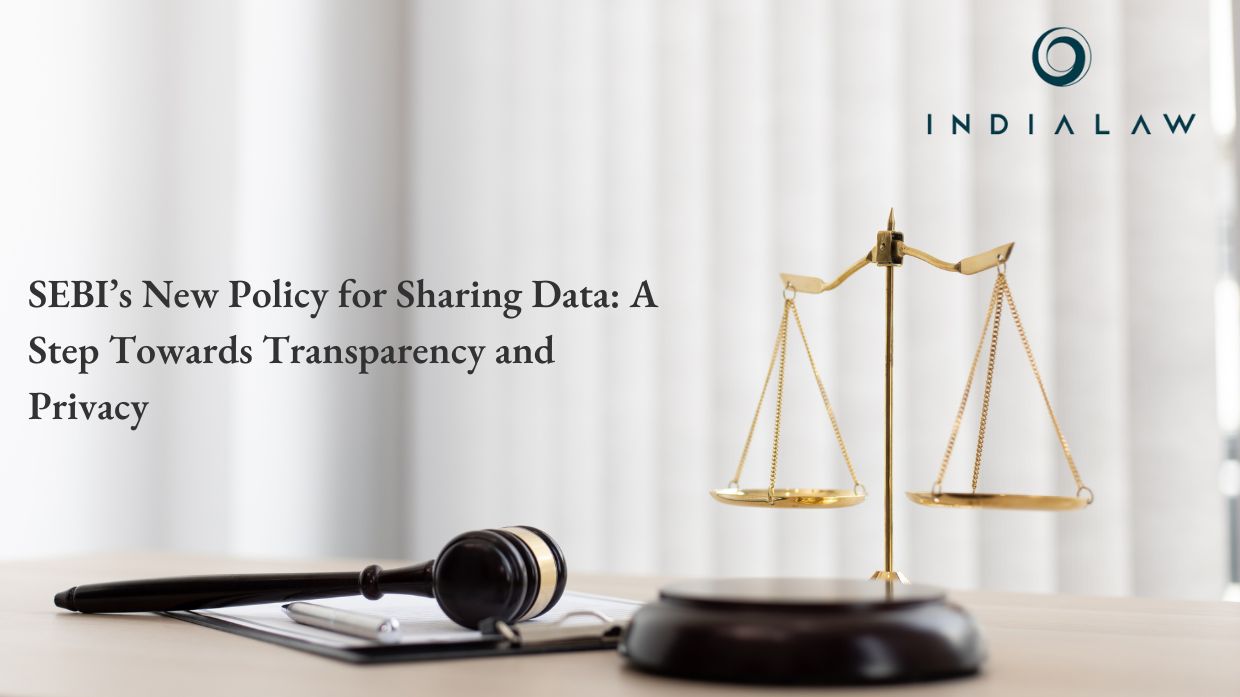SEBI’s New Policy for Sharing Data: A Step Towards Transparency and Privacy

In an effort to enhance transparency and responsible use of data in the Indian securities market, the Securities and Exchange Board of India (SEBI) has issued a new circular on December 20, 2024. This circular introduces a comprehensive framework for data sharing by Market Infrastructure Institutions (MIIs) — which include stock exchanges, clearing corporations, and depositories — specifically for research and academic purposes. The move aims to balance the accessibility of market data with the need to protect sensitive and personal information.
Table of Contents
Background
The new policy builds upon SEBI’s February 25, 2022, circular that mandated free dissemination of regulatory-mandated reporting and disclosure data in downloadable formats. It also required that chargeable data be clearly identified in the public domain. Recognizing the challenges of data authenticity, adequacy, and privacy, SEBI consulted its Market Data Advisory Committee (MDAC). The committee emphasized the importance of a uniform approach to data collection, processing, storage, and sharing to ensure stakeholders have access to accurate and secure data from the original sources.
Objectives of the Policy
- To establish a standardized policy for MIIs to share data for research purposes.
- To classify data into categories based on accessibility and sensitivity.
- To safeguard personal and sensitive information while promoting responsible dissemination of anonymized data.
- To create mechanisms that allow researchers to access relevant data for academic and analytical work.
Key Provisions of the Circular
1. Data Classification
The policy categorizes data into two distinct baskets:
- First Basket: This includes publicly accessible data, such as aggregated and anonymized datasets that cannot identify individuals or entities. Examples are:
- Business growth metrics.
- Trading statistics and historical data.
- Corporate bond trade reports.
- Historical daily trade prices and indices snapshots.
- Second Basket: This comprises sensitive or confidential data that cannot be shared publicly due to privacy concerns. Examples include:
- KYC details and unique client codes.
- Personal identifiable information (PII).
- Trade logs linked to specific clients or members.
2. Data Sharing Framework
- Data in the First Basket:
- Up to 2 GB per researcher per year is available free of cost if no extra computation is needed.
- For larger volumes or data requiring processing, MIIs may charge fees based on actual costs.
- This data must be presented in a stakeholder-friendly format, with sample files provided on MII websites.
- Data in the Second Basket:
- Sharing is restricted due to the sensitive nature of the data. Examples include collateral information and client-wise margin data.
3. Approval and Review Mechanisms
- MIIs must classify and submit data lists for SEBI’s approval within 60 days of the circular’s issuance.
- Data categorizations will be reviewed annually or as required.
4. Implementation and Compliance
- MIIs must create and display a “data request form” on their websites, allowing data seekers to justify their requests.
- The policy’s provisions are effective immediately, with MIIs required to report their implementation status to SEBI within three months.
Annexure Highlights
The circular’s annexure provides illustrative examples of data types in both baskets. For instance, public data includes indices snapshots and daily trading statistics, while restricted data involves personal and trade-specific information such as KYC details and trade logs.
Legal Basis
The circular is issued under Section 11(1) of the SEBI Act, 1992. This section empowers SEBI to protect investor interests, promote the development of the securities market, and regulate its functioning.
Implications for Stakeholders
This policy is a significant step toward fostering a data-driven research ecosystem while addressing privacy concerns. By making non-sensitive data readily available and streamlining the request process for researchers, SEBI ensures greater transparency and access to valuable market insights. At the same time, stringent safeguards for sensitive information uphold privacy and maintain trust in the financial system.
Conclusion
SEBI’s new data-sharing policy reflects its commitment to transparency, innovation, and regulatory oversight. By creating a balanced framework for data access and privacy, this initiative not only supports academic research and market analysis but also strengthens the integrity of India’s securities market.
For further details write to contact@indialaw.in
By entering the email address you agree to our Privacy Policy.



